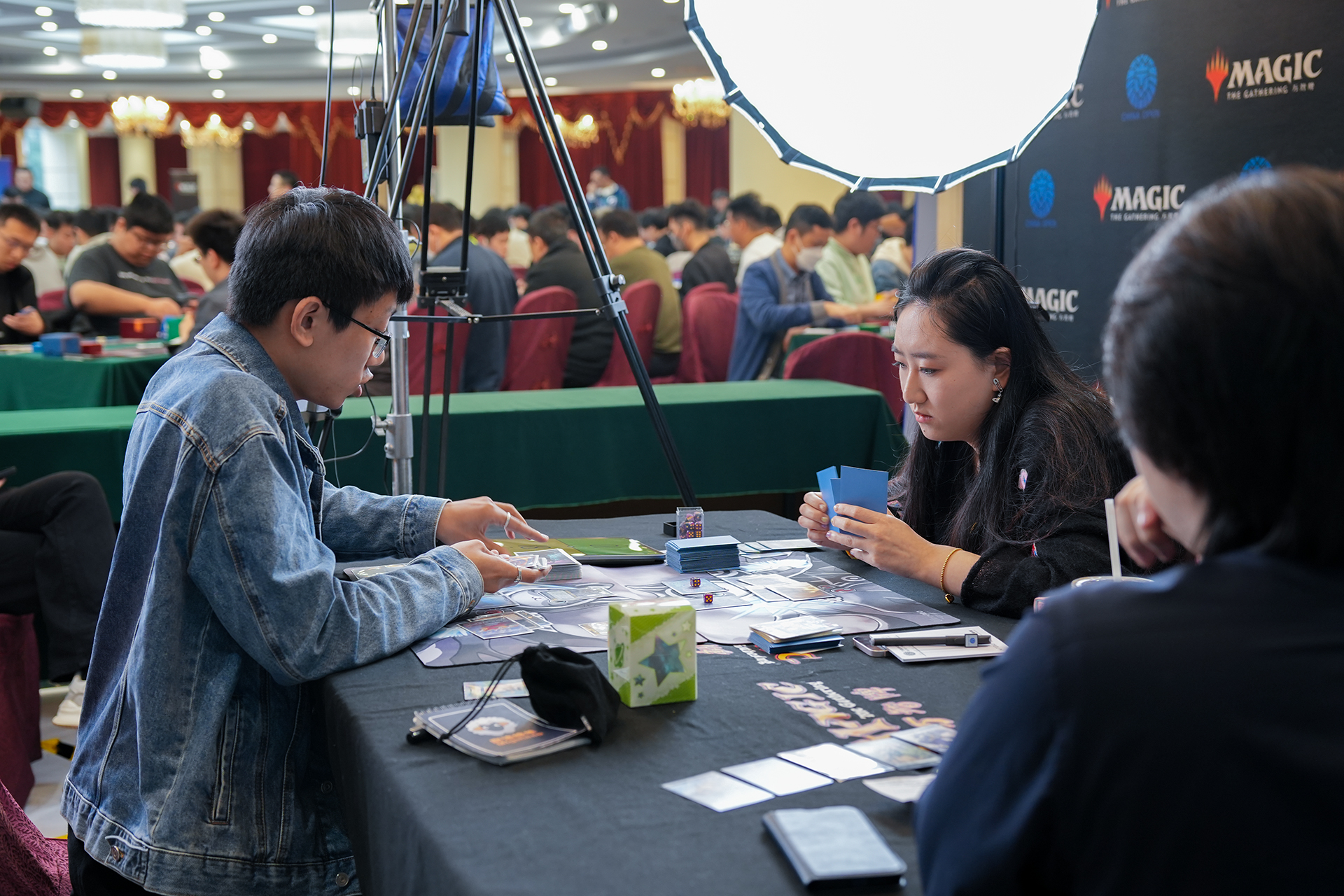Beijing-based producer and musician Fishdoll, real name Yuyu Feng, studied the violin in high school and performed with the Jin Fan Symphony Orchestra for six years. Her second full-length release, Moonsense, takes this early access to orchestral music and combines it with her own sense of electronified soul and RnB for a record that is introspective, full of imagery, and incredibly enjoyable to listen to.
The album took three years to finish, as Feng taught herself how to add orchestration to her music. Compared to her first full-length release, Noonsense, which came out in 2018, this is a very different entity. The former project focused on sound, samples, texture, and the energy she wanted to create.
The name of that first album was intended to reflect the album’s content, “because none of the songs have real lyrics, they are all fake English gibberish, so they are nonsense, and ‘Noonsense,’ this word is also not a real word. It doesn’t make sense, but at the same time, it kinda makes some sense,” Feng tells us.
Noonsense currently holds a rating of eight (out of 10) on the Chinese ratings website Douban. Pretty much directly after finishing that record, she moved on to creating Moonsense. While her first album “was like pure self-expression,” Moonsense sounds more conceptual, more intentional.
Feng speaks to this intentionality and says, “One thing I learned is that making music is not just for myself anymore. I’m not talking about whether I should start making pop music and become famous. Integrity is always the priority. I just realized I was doing everything for fun, and yes, it’s important that I should have fun first. But I want to create something that has a deeper meaning than that.”
She continues, “I come from a blue-collar family, so studying abroad put a big burden on my family. Now it’s my duty to help my parents get out of their financial situation. I want to make something that makes you feel loved, whatever that means to you. If this album can make my parents happy, just like when they listen to some good-old Teresa Teng, then I have succeeded.”
Reflecting on the influences that went into creating her latest record, Feng says, “I’ve always wanted to compose orchestral music,” before adding, “I had some listening experience with orchestration, but Sheena Ringo’s album Heisei Fūzoku planted a seed in me. I remember it blew my mind when I heard it at 15 years old, especially the tune ‘Stem Daimyo Asobihen.’ It was my first time hearing something like this; I never knew pop music could actually sound like this.”

The album artwork for “Moonsense” was designed by Yoowen and hand-drawn by 彭黛西 AbonnyX
Creating the record wasn’t easy. Feng says she hated everything she came up with for nearly two years. Her frustration with the process led to depression — eventually so severe that she even struggled to listen to music.
“No matter how [many times] my friends and my partner told me that my music is great, I’m beautiful, I’m awesome, I chose to ignore the support and convinced myself that I’m not good enough,” she says. “The pressure coming from my last album also made my expectations too high, and it killed my creativity.”
The mixed feelings aroused by the experience ultimately became part of the learning process, a means toward accepting herself, feeling comfortable with her music and in her own skin.

Image courtesy of 常志杰 Si-lis
“Throughout this process, I explored a lot about myself and about being a human, and life in general. The struggle made me stronger. To be honest, this record still doesn’t sound good enough for me, but I have tried the best I can; that’s more important. And the next one will always be better, I believe.”
Perfect or not, the result is a gorgeous melding of styles. On the album’s opener, “K’un,” the listener feels as if they are being introduced to a new world. There’s something otherworldly to the string sections that beckon us into the album.
From there, we hear Fishdoll in what appears to be her natural musical environment, surrounded by electronic soul and jazz music, albeit with more intricate layering on tracks like “Mauve Pearl.” When taking the album as a whole, it’s hard to classify it under one genre.
One particular standout is “Plastic Ocean,” which may be a veiled reference to nature and the environment. It’s a topic she addresses in the liner notes for the album and something of personal interest to her.
“I’m busy with work most of the time, so I don’t have a chance to connect with nature. Chaoyang Park and Beihai Park are the spots I like to hit if I want a relaxing day. I love hanging out in the parks. Although everything is human-made, I still enjoy seeing the big open sky and plants in the summer. I think my favorite thing to do is to look at the clouds of Beijing. When it’s clear, no pollution, the clouds look like they are gods having fun in the sky.”
She tells us that part of her love of nature lies in its unwavering reciprocity.
“Nature keeps providing us [with] everything we need, no matter how ignorant and greedy human beings are. After we damage the environment over and over again, the trees never stop growing, the rain and sun never stop providing us [with] the water and light we need. Nature keeps functioning in its own way every single day. It’s never like we hurt her, so she withdrew her love.
“That’s unconditional love.”
Cover image by 常志杰 Si-lis

















